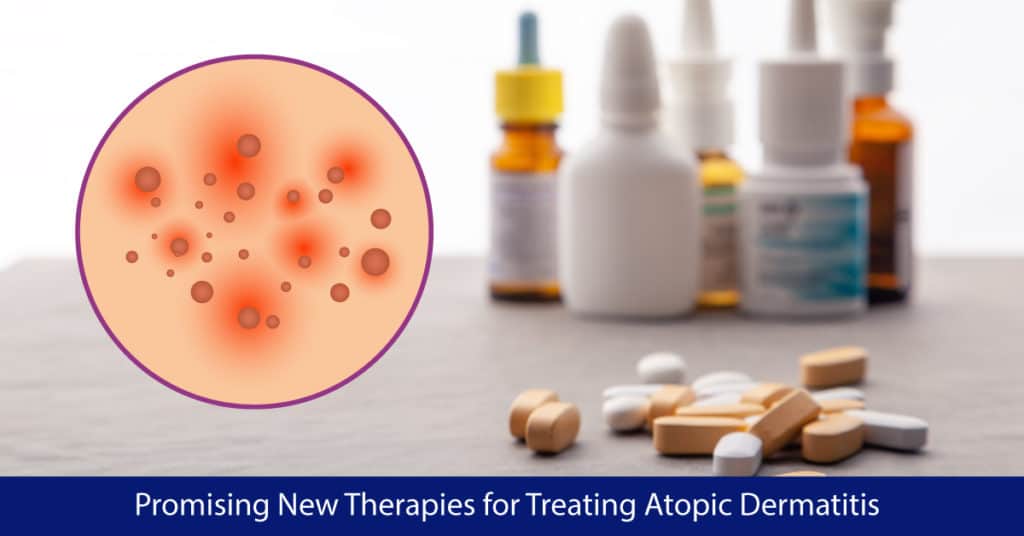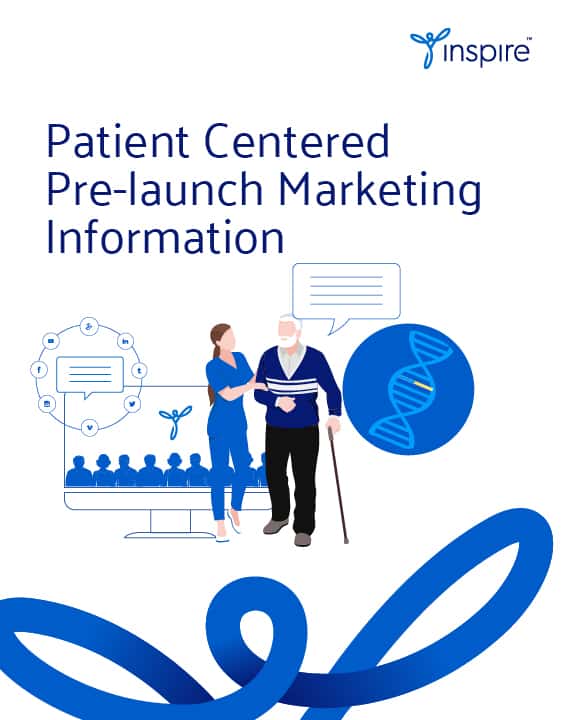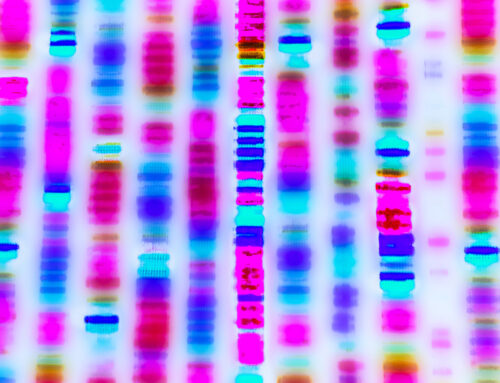Promising New Therapies for Treating Atopic Dermatitis

By Kathleen Hoffman, PhD, MSPH
People who do not have atopic dermatitis (AD), also called eczema, can have the simple experience of having an itch relieved by scratching. For people with atopic dermatitis, this is a heavenly fantasy. For AD sufferers, the symptom most of them have in common is areas of skin with unrelenting itching, burning, or otherwise painful discomfort.
I am absolutely miserable with eczema on my face. … I think I have it under control, and then ,bang, there it goes again – the unbearable itching, stinging, and pain, I have become afraid to try anything… There seem[s] to be no end to this, and I do not know what to do at this point.
AD most commonly (but not always) begins in childhood, remains chronic, and has unpredictable flares. It is classified as an autoimmune disorder, and, for some, it is also associated with hay fever or other allergies. There is no cure. Sufferers are legion: According to one national organization, 10.1% of people in the U.S. (31.6 million people) have some form of eczema. Over 62% of people with moderate to severe AD report relentless itching that lasts over 12 hours per day. All of them search for treatments to relieve symptoms. The caregivers experience the disease burden too:
…I’m always trying my best, to do what ever it is to help my daughter’s eczema issues to pin pointing her triggers at this point I can’t get control of her outbreaks and they happen over night and her crying night after night from her itchy skin it breaks my heart…
The study of eczema is a priority for the NIH’s National Institute of Allergies and Infectious Diseases (NIAID) because of the prevalence of the disease and the lack of a cure. Last year, they reported some success with an experimental probiotic therapy where a bacterium naturally present on skin, Roseomonas mucosa, was applied to affected areas. This year, they are recruiting families for a study called Systems Biology of Early Atopy, or SUNBEAM, to find early childhood markers and biological pathways for both food allergies and eczema.
Treatments have included topicals, anti-inflammatories, immunosuppressive drugs, and, more recently, Janus kinase inhibitors (JAKs). However, there is a great deal of excitement for new biologics to treat AD. Rather than act systemically, the biologics in development would modify the immune response specific to AD. In an article published by the National Eczema Association, Dr. Emma Guttman-Yassky, chair of dermatology and immunology at the Icahn School of Medicine at Mount Sinai in New York said, “This is a very exciting time for biologics in AD. … It is a busy field of study.” There are 25+ new biologics being developed for treatment of AD.
For Inspire’s members, new and effective treatments cannot come soon enough.
I’m 33 years old and a lifelong sufferer of moderate to sometimes severe eczema. Typically my flare ups respond to a short bout of [medication]. However lately once I’ve stopped use, the flare ups just come back… Over the last 6 or 7 months I have been trying more natural lotions/butters/salves … They work to moisturize but once my skin begins to act up, nothing helps and as I said the steroid I typically use only clears it up for a couple days and I’m back to flaring/itching and causing it to spread.
With an audience size of over 84,000 people and over 45,000 posts on eczema, Inspire’s AD sufferers constitute a large audience of people looking to pharmaceutical marketing and clinical research for relief.
Inspire offers a trusted community to patients and caregivers. Our goal with this blog, this website and our content is to provide the life science industry access to the true, authentic patient voice. In so doing, we support faithful operationalization of patient-centricity. Take a look at our case studies, eBooks and news outlet coverage.
References:
1https://corp.inspire.com/wp-admin/post.php?post=13227&action=edit
2 https://www.mayoclinic.org/diseases-conditions/atopic-dermatitis-eczema/symptoms-causes/syc-20353273
3https://nationaleczema.org/research/eczema-facts/
4https://nationaleczema.org/biologics-eczema-treatment/






